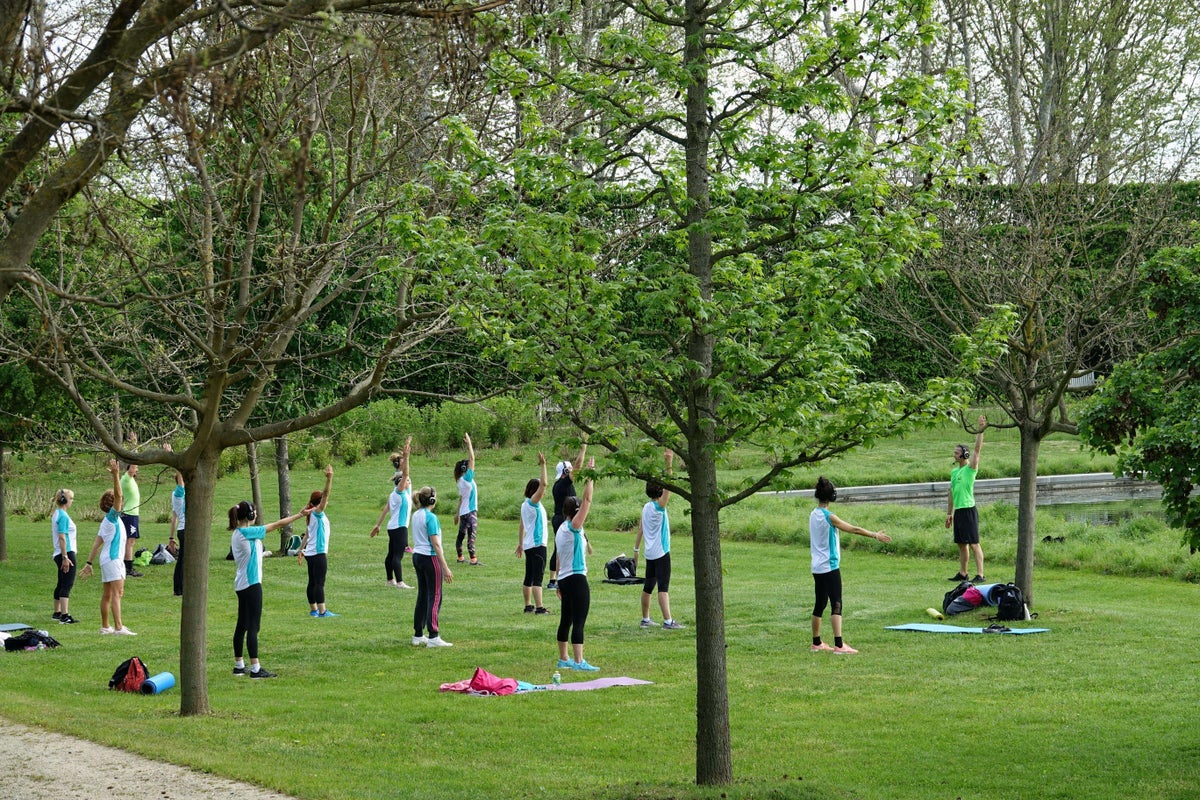
Exercising throughout adulthood slashes the risk of early death by 30% to 40% – but any activity is better than none, a study has found.
While long-term good habits reap the most benefits, switching to a more active lifestyle at any point in adulthood extends life, suggesting it is never too late to get healthy, researchers said.
Overall, physically active people are less likely to die from a range of conditions, including heart disease, stroke and cancer.
Experts reviewed 85 existing studies on millions of people for their research, published online in the British Journal of Sports Medicine.
They found that people who were consistently physically active had around a 30%-40% lower risk of dying from any cause, while those who increased their levels of exercise (from below recommended amounts) had a 20%-25% lower risk.
Notably, people who switched from being physically inactive to being active were 22% less likely to die from any cause than those who remained inactive.
The team, including experts from the University of Queensland in Australia, wrote: “Several mechanisms may explain the reduced mortality risk with high physical activity, such as physical function improvement and anti-inflammatory effects.”
They said their results “emphasised the importance of physical activity across adulthood, indicating that initiating physical activity at any point in adulthood may provide survival benefits”.
Currently, the World Health Organisation (WHO) recommends adults aim for 150 to 300 minutes per week of moderate-intensity physical activity, or 75 to 150min per week of vigorous-intensity activity, or a combination of the two.
Examples of moderate activity include very brisk walking (4mph or faster), heavy cleaning such as washing windows or mopping, cycling at 10mph-12mph, or badminton.
Vigorous activity includes hiking, jogging at 6mph or faster, shovelling, fast cycling, a football game, basketball or tennis.
Cancer Research UK health information manager, Amy Hirst, said: “Being active has many benefits, and by helping you keep a healthy weight it can reduce the risk of 13 different types of cancer.
“Any exercise is better than none, and the more you do, the better. You don’t need to run a marathon or join a gym – anything that gets you warmer, slightly out of breath, and your heart beating faster counts.
“So, whether you go for a brisk walk, a cycle with a friend, or even get the housework done, these all count as ways to be active. Think about making small changes to your daily routine – it all adds up and helps you get moving more.”
June Davison, senior cardiac nurse at the British Heart Foundation, said: “This review suggests that being consistently active is associated with a reduction in deaths from any cause.
“It suggests it is never too late to get active, as switching to a more active lifestyle at any point in adulthood has health benefits, such as reducing the risk of death from cardiovascular disease.
“To keep your heart healthy, adults should aim to be active every day, building up to a total of 150 minutes of moderate-intensity activity every week.
“Simple everyday activities, like a brisk 10-minute walk during your lunch break, all count.”
Sport England chief executive Tim Hollingsworth said: “Doing something will always be better than doing nothing, and – as is rightly stated – it is also never too late to start.
“The report reaffirms that being physically active should be championed at every turn by decision-makers for the good of our health, communities, economy and country.”
Huw Edwards, chief executive of ukactive, said: “This study provides clear evidence that switching to an active lifestyle, at any life stage, has a drastic impact on prolonging life.
‘Small changes’ during adulthood lower risk of early death by up to 40 per cent
‘Alarming’ inequalities in death rates for children in intensive care – study
UN says if US funding for HIV programs is not replaced, millions more will die by 2029
What to know as Yemen's Houthi rebels launch new, more violent attacks on ships in the Red Sea
‘Hate incident’ Co Tyrone bonfire topped with migrant effigy lit
TV doctor and IVF pioneer Robert Winston quits BMA over ‘damaging’ strikes







